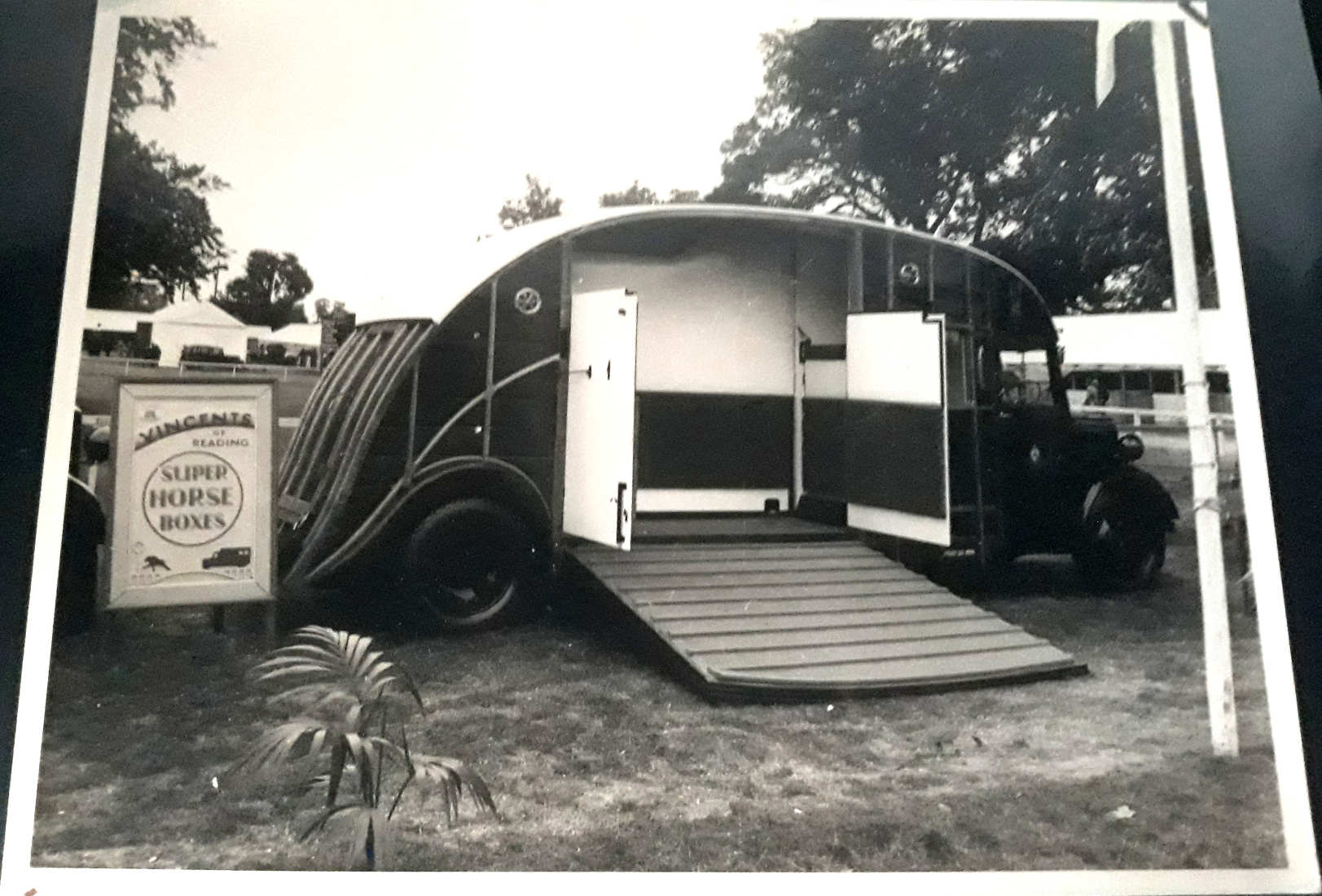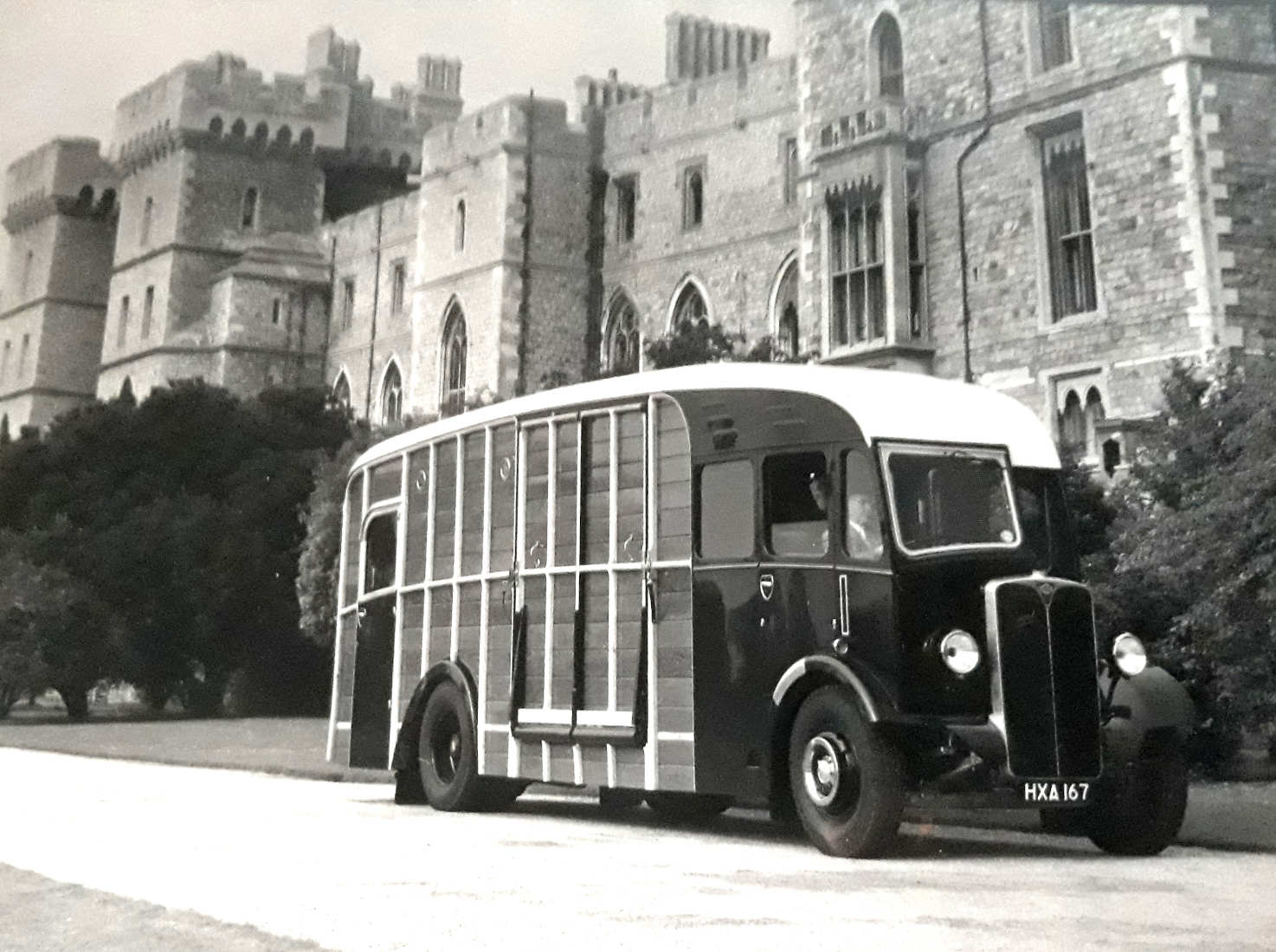On 10 January 1941, the Reading Standard published an obituary for Mr Harry Vincent, head of the motor engineering and coach making firm William Vincent Ltd. Whilst he was not the founder of the business, the Reading Standard was keen to point out that it was he and his brother who gave the business its ‘worldwide reputation for motor engineering in all its branches’. The Standard goes on to give a brief history of the business from its beginnings in Arborfield, to employing nearly 300 people across Reading.
As well as praising the business and Harry’s part in it, the Standard lauded his skills as an inventor and singled out the Vincent Horse-Box as his ‘best-known invention’. It certainly seems to have been a popular creation as it was reportedly constructed for members of the royal family including the Dukes of Windsor, Gloucester, and Buccleuch, as well as for members of the Government, War Office and Indian princes. On 2 August 1946, the Reading Standard described a rather luxurious sounding horse-box for carrying three horses, built by Vincent on the order of the King:
“Built on the A.EC. Regal chassis, the box is finished in the normal Vincent’s pine panelling, with the cab, doors, mudguards, wheels etc., painted in the same maroon colour as the Royal Cars. The seats and upholstery are in Royal blue leather with red piping, whilst the remainder of the interior is decorated with white enamel paint and pigskin.”

Harry Vincent seemed to have his fingers in many pies as he had ties to the Great Western Hotel, the Royal Berkshire Hospital, the Woodley Aero Club, the Freemasons, and several sporting clubs among others. The obituary also notes that he was ‘an expert motorist’, ‘one of the first to race on the Brooklands track’ and ‘a pioneer of motor track racing.’
This would not be the first time that the newspapers reported on Harry Vincent’s penchant for speed. 38 years earlier on 10 October 1903, the Berkshire Chronicle gave details of several motorists put on trial for breaking speed restrictions through the village of Theale. One of these motorists was Harry Vincent of Reading. Each of the defendants were accused of travelling at a speed of 16-22 miles per hour, significantly higher than the speed limit of 12 miles per hour. Most of the motorists pleaded guilty although also claimed ‘that the police had grossly exaggerated the speed’. Each were fined between £1 8s. 6d. and £1 10s. 6d, over £100 in modern currency.
Another driver (G. Russell Miller) received a fine for a similar infraction that took place a few days later. However, they were also fined for a second offence: ‘driving a motor car backwards for a greater distance than necessary’. It was not stated what distance was considered necessary to be driving backwards for.
An issue of the Reading Mercury from 7 January 1939 shows another aspect of Vincent’s business: running the Reading taxi rank. Over the preceding holiday period, the demand had been higher than anticipated and Vincents issued the following apology:
“Messrs Vincents of Reading Limited
would like to say to the hundreds of people who rang up for taxi-cabs during the Christmas holiday, how sorry they were that they could not carry out their orders, and that they had to refuse so many.
They will shortly be having a new fleet of super Austin cars, the bodies being specially designed and built in their own works for this particular service, and which will be run at the usual rates during the daytime, with no extra charge after midnight or for luggage.
They have to thank their numerous customers for past orders, and would again express regret that they had to disappoint so many.”
This once again demonstrates the importance of Vincent to the Reading area and that demand for their services continued to grow well into the 20th century.
However, the success of Vincents seems to have attracted its share of trouble, as one incident reported on in 1950 can demonstrate. The 3 March 1950 issue of the Reading Standard recounts a trial at the Reading Magistrates Court of Horace Joffle Holmes who was charged with robbing Vincent’s garage on Station Square. The prosecutor recounted how the accused approached Henry Oliver at the cash desk and demanded the money from the till. He is reported to have been wearing a mackintosh coat and ‘with his right hand in his pocket, went up to the desk and resting his arm on the counter as though he had a weapon in his pocket’. Despite his attempts to defuse the situation, Mr Oliver went on to give Mr Holmes £25 (roughly equivalent to £800 today) for fear that he had a gun. In a later statement, the accused admitted that there was no weapon and he just had his hand in his pocket to imitate one. The success of Vincent’s clearly marked it as a target for this theft, which was reported in newspapers across the nation, including the Evening Telegraph.

Vincents of Reading has a long history from its founding in 1805 to making its last horse-box in the 1980s. From these few stories, we can get a glimpse of the success that they had, their importance to the community, and the influence that the owners held over so many aspects of Reading life. That there are so many stories with links to Vincents reported on in local newspapers is testament to their prominence in the public consciousness.
These are simply a few amusing tales from local newspapers to whet your appetite. If you have found these interesting and would like to find out more about Vincent’s, the Berkshire Record Office holds a sizeable collection under the reference D/EX1401, which includes a large number of photographs. You can view the catalogue online for details.
